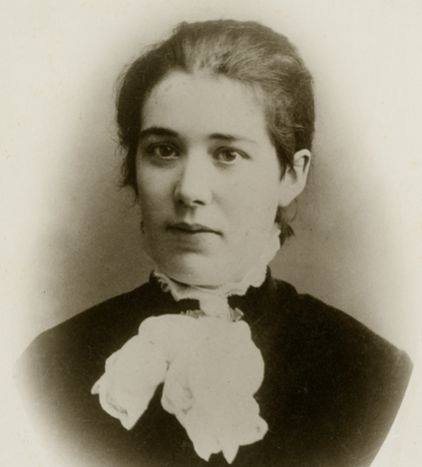Manx 'Cultural Activist' - It's a strange term!
I noted with interest remarks on Daphne Caine MHKs Facebook page of the occasion of the birthday of Sophia Morrison (24th May 1859).
She was in turn commenting on another Facebook page which says:
“Sophia was a Manx cultural activist, folklore collector and author. Through her own work and role in encouraging and enthusing others, she is considered to be one of the key figures of the Manx cultural revival”
Daphne says:
“I love the term cultural activist. Can I be one - who’s with me? “
Fear not Daphne you have your vocation correct because its only in these times when we particularise between political and cultural nationalism that these things matter and I’m afraid the suggestion that Sophia Morrison was solely devoted to culture, though it may suit the agenda of some, is way of beam.
But who am I to argue the toss - decrepit keyboard warrior that I am?
Morrison was pivotal in the turn of the century Pan Celtic movement and the Celtic Congress. The Congress though avowedly non political these days was not always so
Here’s what historian and author Peter Berresford Ellis has to say on the matter in his book The Celtic Dawn:
“Members (of the Celtic Congress) were pledged to the revival of each Celtic language and to some degree of ‘official status’. Because of this, the early Celtic Congresses had a political hue. Indeed, the very act of speaking a Celtic language, let alone campaigning for its status, could be interpreted as an act of political expression when the Imperial government were actively discouraging the languages as a continuing part of their centuries-old policy of destroying them.”
Later Beresford Ellis also records that the political dynamic of Pan Celticism was dropped saying;
“The 1917 Celtic Congress (whose papers were published in volume form in 1918) was subdued. This is understandable, for it was meeting in the ‘great war’, a year after the Irish uprising, and many of its Irish supporters had been executed or imprisoned for their part in the insurrection. There was little emphasis on political nationalism, for obvious reasons.”
He goes on that after 1917 and to the present day the Celtic Congress ‘lost the political content of its first decade and a half’.
However by the 1917 Congress Sophia Morrison was dead having died in the year it was held.
Mona Douglas described often as a ‘Militant Manxwoman’ famously remarked of Morrison:
“She accomplished more in her short life than most people do in double the time”
Her 'short life' covered that period the Pan Celtic movement was political.
She also said:
“Her love and service of the Manx national cause was like a religious vocation”.
Many of here contemporaries at that first Celtic Congress went on to give sterling service to both political and cultural nationalism the two were seen as complementary. Douglas Hyde became first President of Ireland in 1938. Morrison's Welsh nationalist friend Mallt Williams also remained active both politically and culturally. The person she inspired Mona Douglas in addition to her well recorded cultural profile was also active in trying to establish the first Manx Nationalist Party in 1947 – Ny Manninee Dooie.
Of course I’m getting ahead of myself again because isn’t the received wisdom these days that Mona as well was just a ‘cultural activist’. Strange then that she was sitting in that first meeting when Mec Vannin was formed in the early 1960s.
In the early days of Manx nationalism people eschewed the attempt to compartmentalise by placing folk in boxes marked ‘cultural’ and ‘political’. I mean good heavens who was that I saw on an old newsreel holding a standard with the Manx flag and leading a colour party to the republican plot at Glasnevin cemetery at the 50th anniversary of the Easter Rising in 1966. I’m sure I must have been mistaken I could have sworn it was Doug Faragher but then I suppose he to was a ‘cultural activist’! Perhaps I was wrong I am very old!
Image: Sophia Morrison. Somehow I think she aspired to more than ‘a play at the Centenary centre’ she aspired to a country.
Related link ‘THE CELTIC DAWN’ (Peter Beresford Ellis)
ISBN-13: 978-0862436438
ISBN-10: 0862436435
Snap a copy up its on its second print run.







